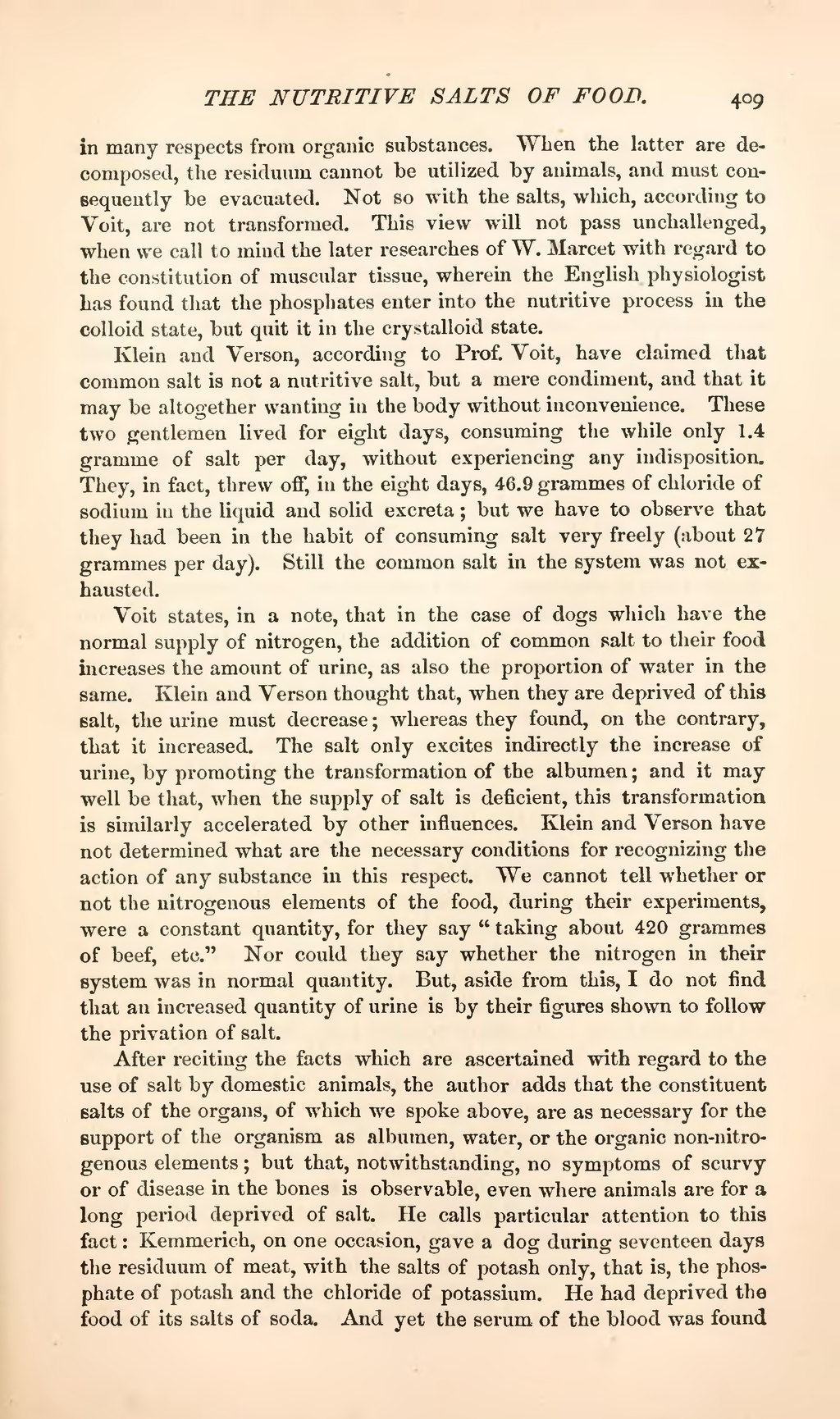in many respects from organic substances. When the latter are decomposed, the residuum cannot be utilized by animals, and must consequently be evacuated. Not so with the salts, which, according to Voit, are not transformed. This view will not pass unchallenged, when we call to mind the later researches of W. Marcet with regard to the constitution of muscular tissue, wherein the English physiologist has found that the phosphates enter into the nutritive process in the colloid state, but quit it in the crystalloid state.
Klein and Verson, according to Prof. Voit, have claimed that common salt is not a nutritive salt, but a mere condiment, and that it may be altogether wanting in the body without inconvenience. These two gentlemen lived for eight days, consuming the while only 1.4 gramme of salt per day, without experiencing any indisposition. They, in fact, threw off, in the eight days, 46.9 grammes of chloride of sodium in the liquid and solid excreta; but we have to observe that they had been in the habit of consuming salt very freely (about 27 grammes per day). Still the common salt in the system was not exhausted.
Voit states, in a note, that in the case of dogs which have the normal supply of nitrogen, the addition of common salt to their food increases the amount of urine, as also the proportion of water in the same. Klein and Verson thought that, when they are deprived of this salt, the urine must decrease; whereas they found, on the contrary, that it increased. The salt only excites indirectly the increase of urine, by promoting the transformation of the albumen; and it may well be that, when the supply of salt is deficient, this transformation is similarly accelerated by other influences. Klein and Verson have not determined what are the necessary conditions for recognizing the action of any substance in this respect. We cannot tell whether or not the nitrogenous elements of the food, during their experiments, were a constant quantity, for they say "taking about 420 grammes of beef, etc." Nor could they say whether the nitrogen in their system was in normal quantity. But, aside from this, I do not find that an increased quantity of urine is by their figures shown to follow the privation of salt.
After reciting the facts which are ascertained with regard to the use of salt by domestic animals, the author adds that the constituent salts of the organs, of which we spoke above, are as necessary for the support of the organism as albumen, water, or the organic non-nitrogenous elements; but that, notwithstanding, no symptoms of scurvy or of disease in the bones is observable, even where animals are for a long period deprived of salt. He calls particular attention to this fact: Kemmerich, on one occasion, gave a dog during seventeen days the residuum of meat, with the salts of potash only, that is, the phosphate of potash and the chloride of potassium. He had deprived the food of its salts of soda. And yet the serum of the blood was found
